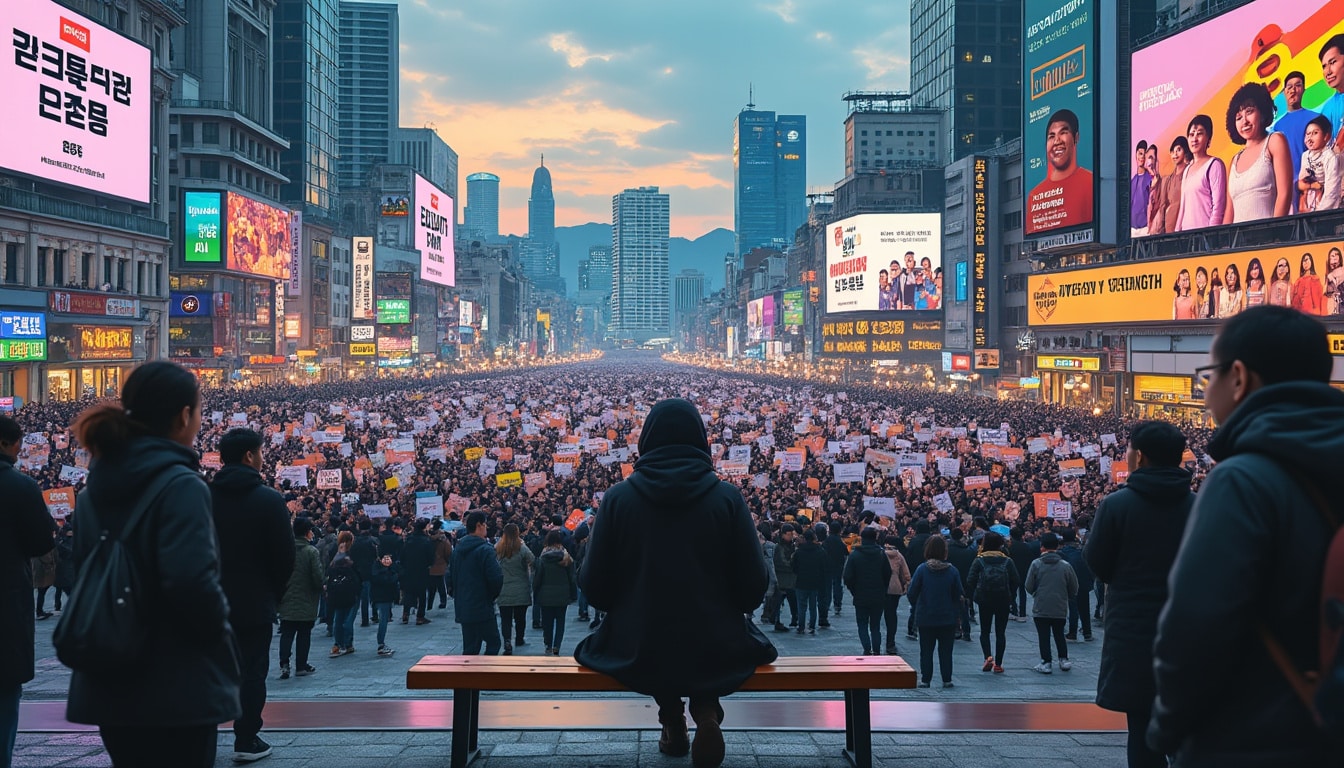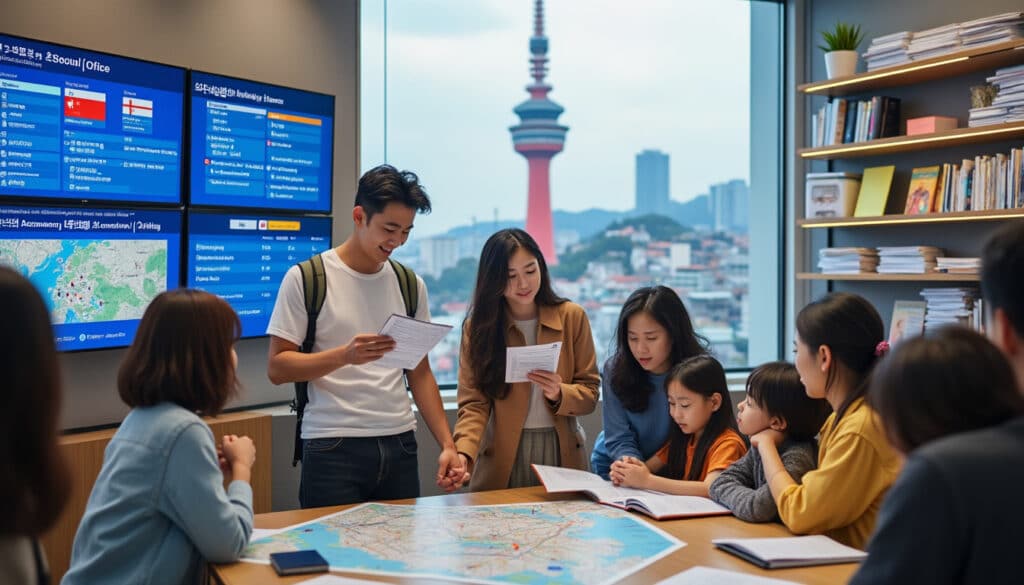The bustling metropolis of Seoul, with its towering skyscrapers and vibrant cultural scenes, is not just a hub of technology and fashion. It is also a microcosm of the broader social and discrimination issues that permeate South Korean society. From the treatment of migrant workers to the stigmatization faced by the LGBTQ community, and the ongoing struggles with economic inequality, these issues affect a significant portion of the city’s residents. The rich tapestry of Seoul’s society is increasingly interwoven with the efforts of various organizations such as the Seoul Social Justice Network, Citizen’s Coalition for Economic Justice, and Korean Women’s Association United, all dedicated to addressing these complex social challenges.
Migrant Rights and Labor Conditions in Seoul
Seoul is a city that thrives on its diverse population, which includes a growing number of migrant workers. Many of these workers are drawn to Seoul by the promise of better opportunities and economic prospects. However, the reality they encounter is often starkly different. Exploitation and unsafe working conditions are rampant, with migrant workers frequently subjected to low wages, long hours, and inadequate safety measures. The tragic fire in a Hwaseong city factory, which resulted in the death of 23 migrant workers, highlighted these pervasive issues.
The Seoul Migrant Worker Center has been at the forefront of advocating for the rights of these workers. They emphasize the need for better legal protections and enforcement of labor laws to ensure fair treatment and safety in the workplace. Yet, despite their efforts, many challenges remain. The cultural and language barriers add an extra layer of difficulty for migrants seeking to assert their rights in a system that often prioritizes the needs of local citizens.
Efforts to improve the situation for migrant workers have been met with mixed success. Government initiatives, such as pilot programs to recruit foreign workers in sectors like domestic help, have faced criticism for setting wages below the minimum and imposing restrictive conditions, including nighttime curfews. These policies reflect underlying societal prejudices that view migrant workers as lesser, reinforcing stereotypes that contribute to their continued marginalization.
In order to address these problems effectively, a multi-faceted approach is necessary. Policies must be revised to provide equitable treatment, and there should be an increased focus on integration programs that facilitate smoother transitions for migrants. Initiatives like language courses, cultural sensitivity training for employers, and stronger union representation are pivotal in creating an environment where migrant workers can thrive. The Korean Federation of Teachers’ Associations is also instrumental in providing educational support to migrant children, ensuring they have the same opportunities for advancement as their Korean counterparts.
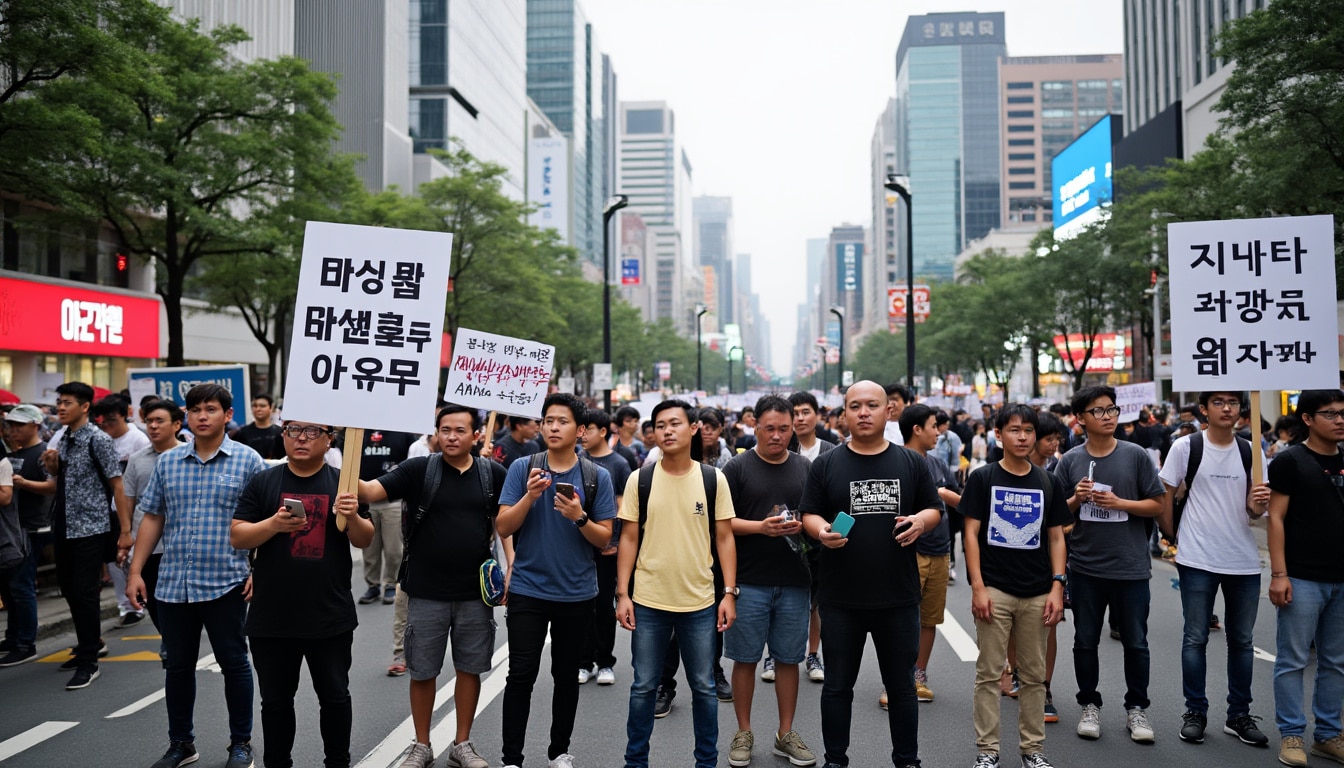
Gender and LGBTQ+ Discrimination in Seoul
Gender and LGBTQ+ discrimination remain pressing issues in Seoul, where traditional gender roles often clash with modern progressive values. Despite being legally recognized for health insurance benefits, same-sex couples continue to face significant legal and cultural hurdles, as same-sex marriage is not yet recognized. This lack of recognition leaves many couples without the full legal protections afforded to heterosexual unions.
The Solidarity for LGBT Rights works tirelessly to advocate for these communities, seeking legal reforms and increased societal acceptance. Public perception is gradually shifting, but not without resistance. In some instances, governmental bodies and religious groups have actively campaigned against changes that would promote equality, highlighting the deep-rooted challenges faced by progressive movements in Korea.
- Same-sex marriage is still not legally recognized.
- Strong advocacy for LGBT rights from local organizations.
- Government and religious opposition to equal rights often occurs.
- Societal perceptions are slowly becoming more accepting.
Women in Seoul face their own set of challenges, particularly in the workplace. The pressure to conform to traditional roles can limit professional opportunities, despite the high levels of education and competence among Korean women. Efforts by organizations such as the Korean Women’s Association United have been crucial in advocating for gender equality in all spheres of society. However, the threat of the Ministry of Gender Equality and Family’s abolition has cast a shadow over these advancements, signaling potential regression in women’s rights efforts.
The issue of gender-based violence, particularly technology-facilitated abuse, is gaining recognition as a growing concern. Deepfake technology, used to create AI-generated sexually explicit content, is cited as a nationwide emergency. Women’s rights groups are lobbying for stronger legislative action and accountability measures for social media platforms to counteract this form of violence.
Economic Inequality and Its Social Implications
As one of Asia’s most dynamic cities, Seoul is not immune to the impacts of economic inequality, which has broadened the gap between its wealthy and less affluent residents. This disparity is visible in various aspects of daily life, from housing and education to healthcare and employment. The aftermath of the 1997 Asian financial crisis marked a turning point for South Korea, with economic disparity becoming more pronounced since then.
The Citizen’s Coalition for Economic Justice has been instrumental in highlighting these inequalities and advocating for economic reforms to address them. They emphasize the importance of structural changes to ensure a more equitable distribution of wealth and opportunities, suggesting interventions such as progressive taxation, increased minimum wages, and improved access to quality education for underprivileged communities.
| Indicator | Wealthy | Middle Class | Underprivileged |
|---|---|---|---|
| Housing | Luxury Apartments | Moderate Housing | Substandard Living Conditions |
| Education | Private Schools | Public Schools | Restricted Access |
| Healthcare | Premium Clinics | Standard Hospitals | Limited Access |
The ongoing economic challenges in Seoul also exacerbate issues of social inequality. Low social mobility and entrenched privilege contribute to a cycle of poverty that is difficult to break. Solutions like affordable housing projects and workforce training programs are essential in providing the necessary support for those struggling to escape poverty.
In the face of these economic pressures, community organizations, such as the Seoul Youth for Social Change, are rising to create opportunities for engagement and activism. They focus on empowering young people to drive initiatives that promote social accountability and sustainability, fostering an environment where future generations can thrive.
Disability Rights and Social Inclusion
Seoul’s commitment to inclusivity and accessibility is often tested by the ongoing challenges faced by people with disabilities. Despite advocacy efforts from groups like the Korean Association of the Disabled, significant barriers remain. Restricted accessibility in public transportation, inadequate amenities in public spaces, and limited job opportunities reflect the broader societal issues around inclusivity.
The protests led by the Solidarity Against Disability Discrimination have drawn attention to these issues. These protests, notably those regarding the Seoul metro system, advocate for improved access and have highlighted the excessive use of force seen during some of these peaceful demonstrations. The charges levied against protesters further emphasize the systemic challenges that remain in upholding the rights of people with disabilities.
- Accessibility in public spaces is often limited.
- Job opportunities for individuals with disabilities are insufficient.
- Legal protections are frequently not well enforced.
- Advocacy groups continue to push for progressive changes.
Efforts to enhance social inclusion require comprehensive policy reforms and cultural shifts. Education and awareness campaigns play a crucial role in dissipating stereotypes and promoting understanding within the wider societal fabric. A commitment to legislative action is necessary to ensure that accessibility becomes a priority across all sectors, from transportation and employment to healthcare and education.
Environmental Justice and Urban Challenges
Environmental issues are an increasingly pressing concern in Seoul, particularly regarding urban planning and sustainability. Discussions around the right to a healthy environment have gained momentum, as evidenced by recent Constitutional Court rulings calling for stricter greenhouse gas emissions targets. These discussions underscore the need for policies that prioritize the well-being of future generations.
The Korean National Commission for UNESCO is deeply involved in these initiatives, promoting awareness and education about sustainability and biodiversity. They focus on integrating environmental education into school curricula, fostering an early awareness of ecological responsibility among young learners.
| Urban Challenge | Impact | Remedial Action |
|---|---|---|
| Air Pollution | Health Issues | Emission Controls |
| Green Spaces | Public Health | Urban Greening Projects |
| Waste Management | Environmental Degradation | Recycling Initiatives |
The vast urban landscapes of Seoul necessitate strategic interventions to mitigate environmental issues. Policies promoting public transportation, the use of renewable energy sources, and green construction practices can help reduce the ecological footprint. Initiatives like urban gardening and conservation projects are also gaining popularity, reflecting a growing public interest in sustainable living.
Organizations like the Center for Social Welfare in Seoul are exploring the intersection of environmental justice and social equity, advocating for inclusive policies that address the needs of marginalized communities most affected by environmental challenges. These efforts are essential in ensuring that Seoul not only develops sustainably but also equitably.
FAQ
What are the main social issues in Seoul?
The primary social issues in Seoul include economic inequality, gender and LGBTQ+ discrimination, migrant worker exploitation, and accessibility challenges for individuals with disabilities.
How is economic inequality addressed in Seoul?
Organizations like the Citizen’s Coalition for Economic Justice advocate for economic reforms, emphasizing progressive taxation and improving access to education and housing for underprivileged communities.
What progress has been made for LGBTQ+ rights in Seoul?
While there is increased recognition and advocacy for LGBTQ+ rights, challenges remain, particularly with legal recognition of same-sex marriages, which are not yet allowed.
How are environmental issues being tackled in Seoul?
Efforts to address environmental issues include stricter emissions targets, urban greening projects, and sustainability education, led by organizations like the Korean National Commission for UNESCO.
What initiatives exist for migrant worker rights in Seoul?
The Seoul Migrant Worker Center focuses on improving legal protections and working conditions for migrant workers, advocating for fair wages and safer workplaces.
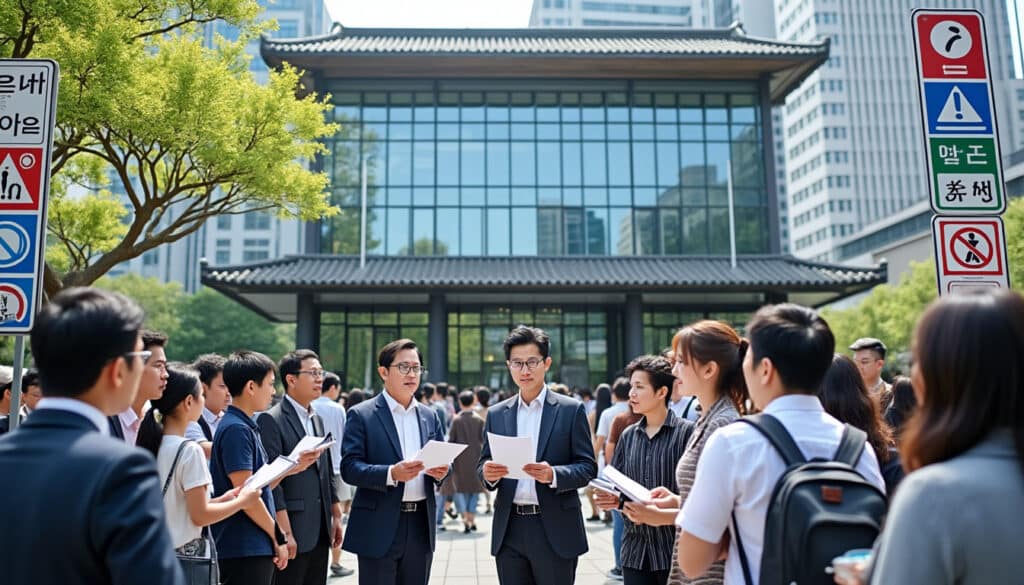
Legal Information and Rules in Seoul
Seoul, a bustling metropolis and a hub of cultural and business activities, is steeped in an intricate web of legal systems. Understanding the legal landscape here is crucial for both residents and visitors alike, as it affects everything from everyday…
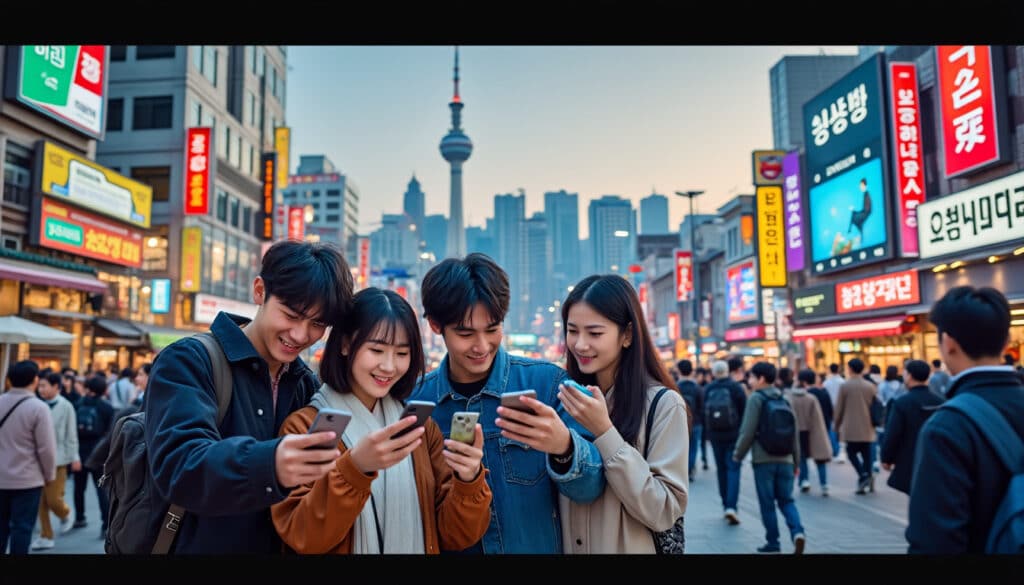
Calling and communication rules in Seoul
As Seoul continues to thrive as a bustling metropolis that harmonizes tradition with the adrenaline rush of modernity, understanding its unique communication nuances becomes essential for every traveler and expatriate. The intricate social protocols and communication etiquettes prevalent in Seoul…
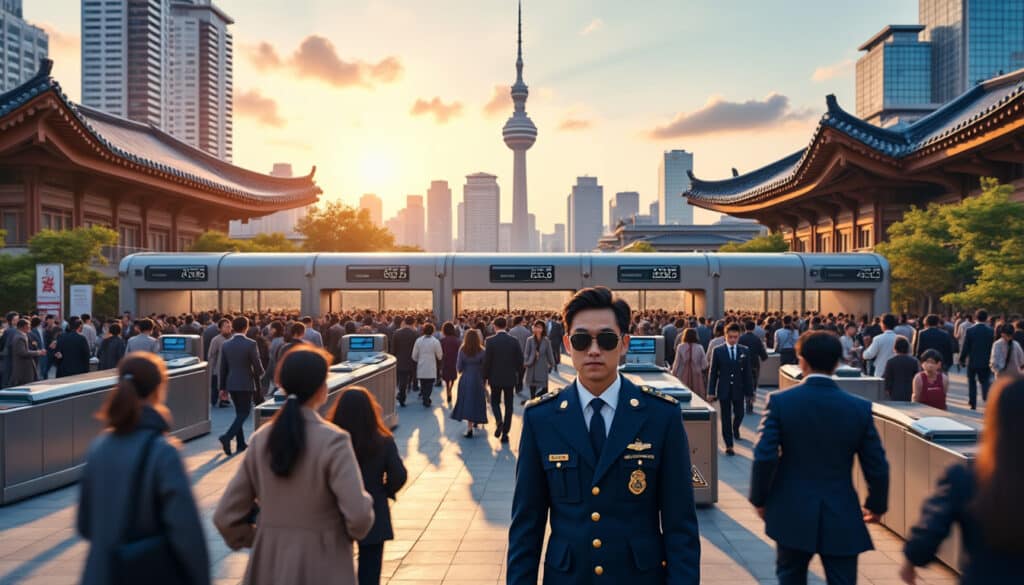
Criminal status and entry to Seoul
Exploring the prospects of traveling to Seoul can be an exhilarating journey into the heart of South Korea, a vibrant metropolis teeming with culture, innovation, and unforgettable experiences. However, for those who have a criminal record, the complexities of entering…
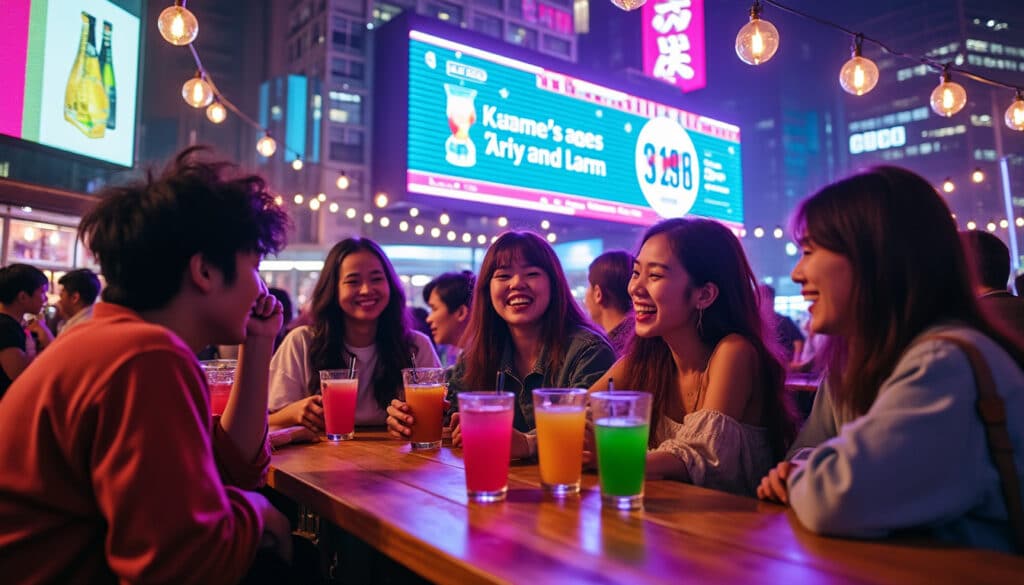
Drinking and age restrictions in Seoul
In the vibrant landscape of Seoul, where neon signs illuminate bustling streets and the aroma of street food fills the air, understanding the intricacies of age-related restrictions becomes crucial, especially for those looking to partake in the city’s dynamic nightlife.…

Seoul, the vibrant heartbeat of South Korea, orchestrates a symphony of cultural and historic charm throughout the year, drawing visitors from all corners of the globe. Known for its dynamic blend of tradition and modernity, Seoul’s holiday calendar is a…

Smoking, drugs, and red light laws in Seoul
Seoul, a city where tradition meets modernity, is not only vibrant and diverse but also strictly governed by a set of comprehensive laws, particularly when it comes to smoking, drugs, and red light districts. For those unfamiliar with South Korea’s…

